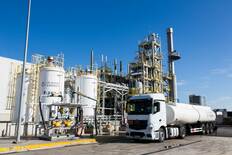
Project Overview
INEOS Olefins & Polymers Europe and Plastic Energy have signed a Memorandum of Understanding to produce 100,000 tonnes per annum of recycled raw materials from plastic waste. This will be the largest use of Plastic Energy technology on the market, enabling a circular approach to produce essential plastic items for food contact and medical applications.
Location and Technology
Production will be based in Köln, Germany, utilizing Plastic Energy’s patented TAC™ recycling technology. This technology converts difficult-to-recycle plastic waste into TACOIL™, a valuable raw material that can be used to create virgin-quality polymers. INEOS will invest in technology to process TACOIL™ further before feeding it to their steam crackers, replacing traditional oil-derived raw materials.
Environmental Impact
The project aims to reduce plastic pollution and the use of fossil-based raw materials. The circular re-use of ‘end of life’ plastic will also help to reduce total emissions, supporting the transition to net zero. An independent third-party organization will certify that fossil-based feedstocks have been substituted by the new, recycled materials using a mass balance approach.
Timeline and Collaboration
INEOS and Plastic Energy first announced their collaboration in 2020. TACOIL has already been successfully converted into virgin-quality polymer through the INEOS cracker in Köln and used by selected customers. Production is targeted for the end of 2026, marking a significant step in their partnership to scale advanced recycling solutions.

